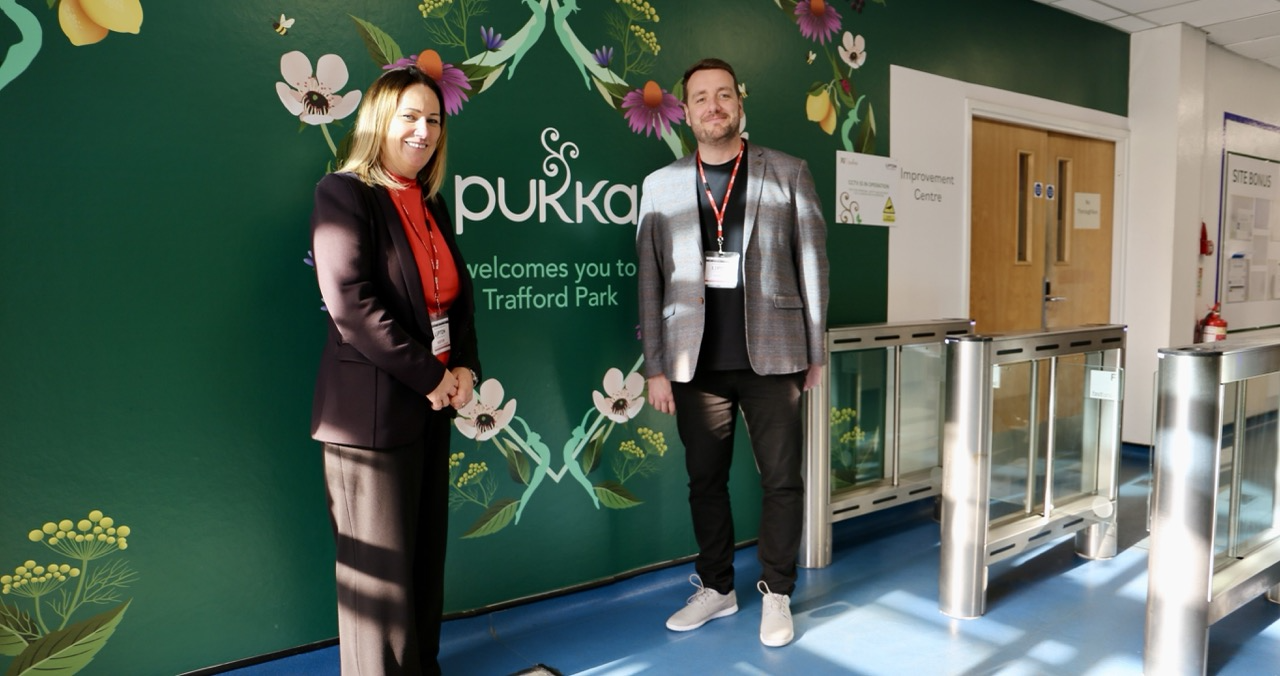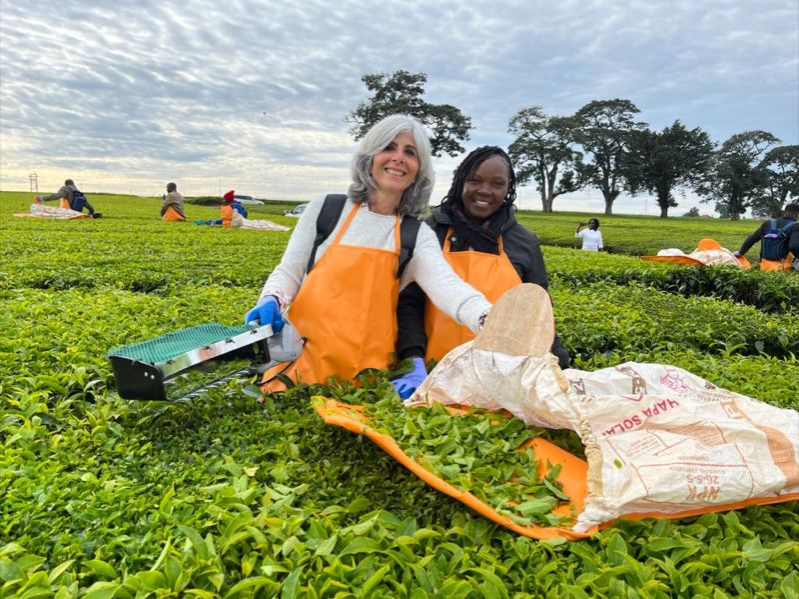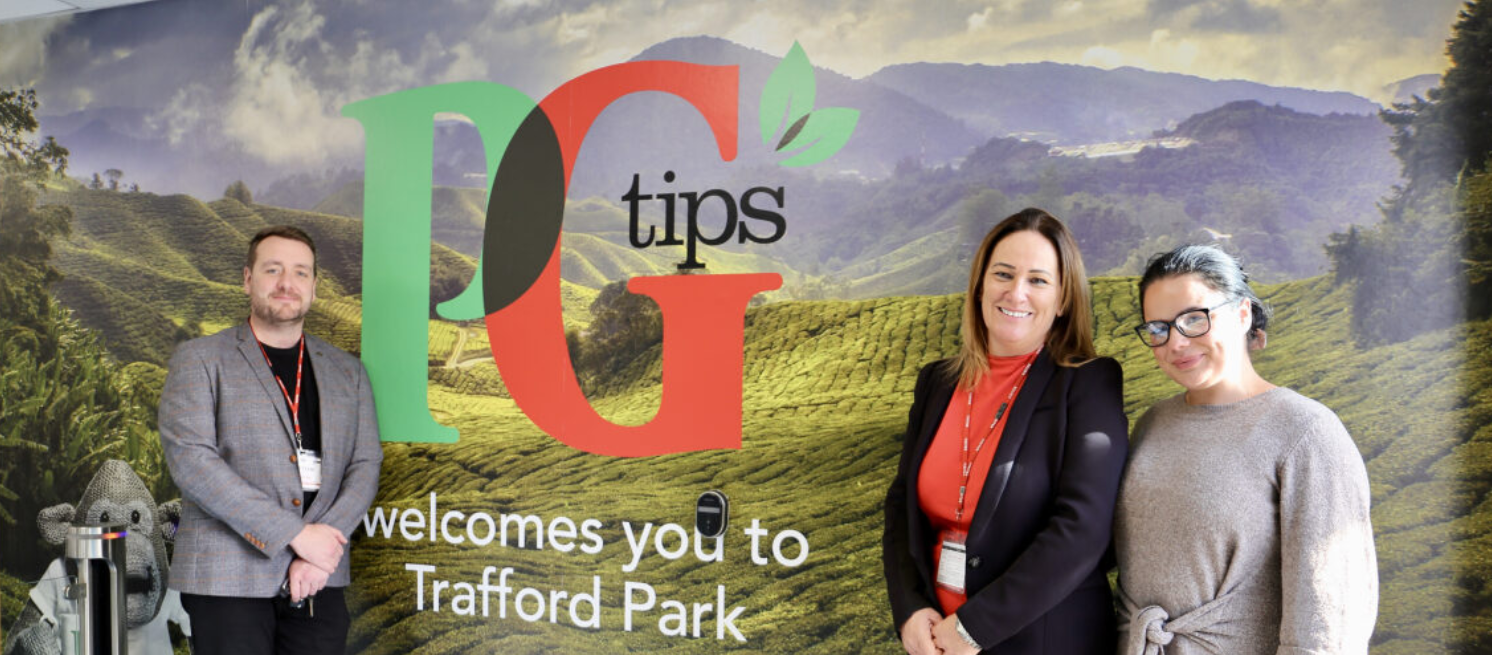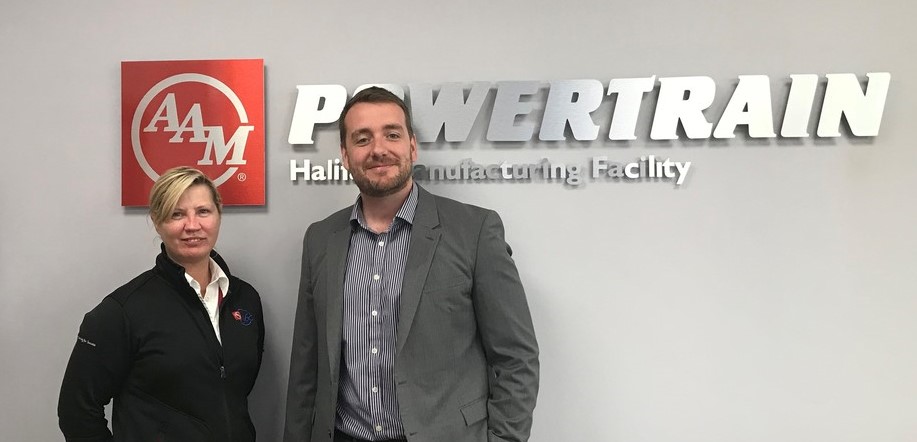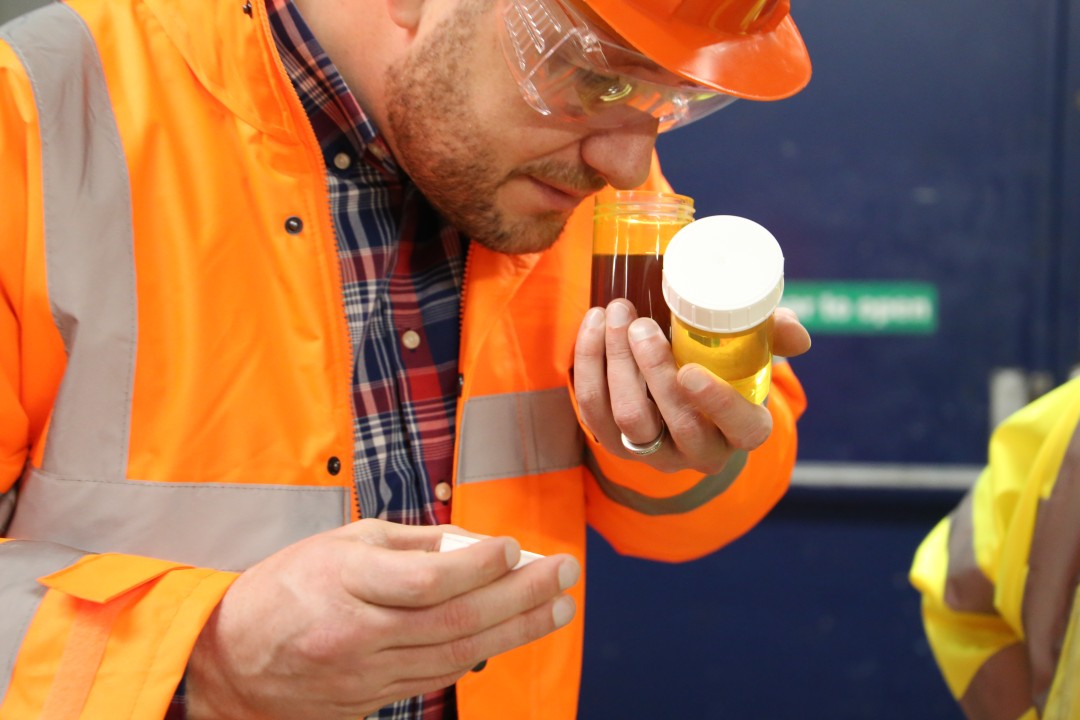
Bringing People
Together
Since 2002
You can speak to an advisor on: 0151 786 8239
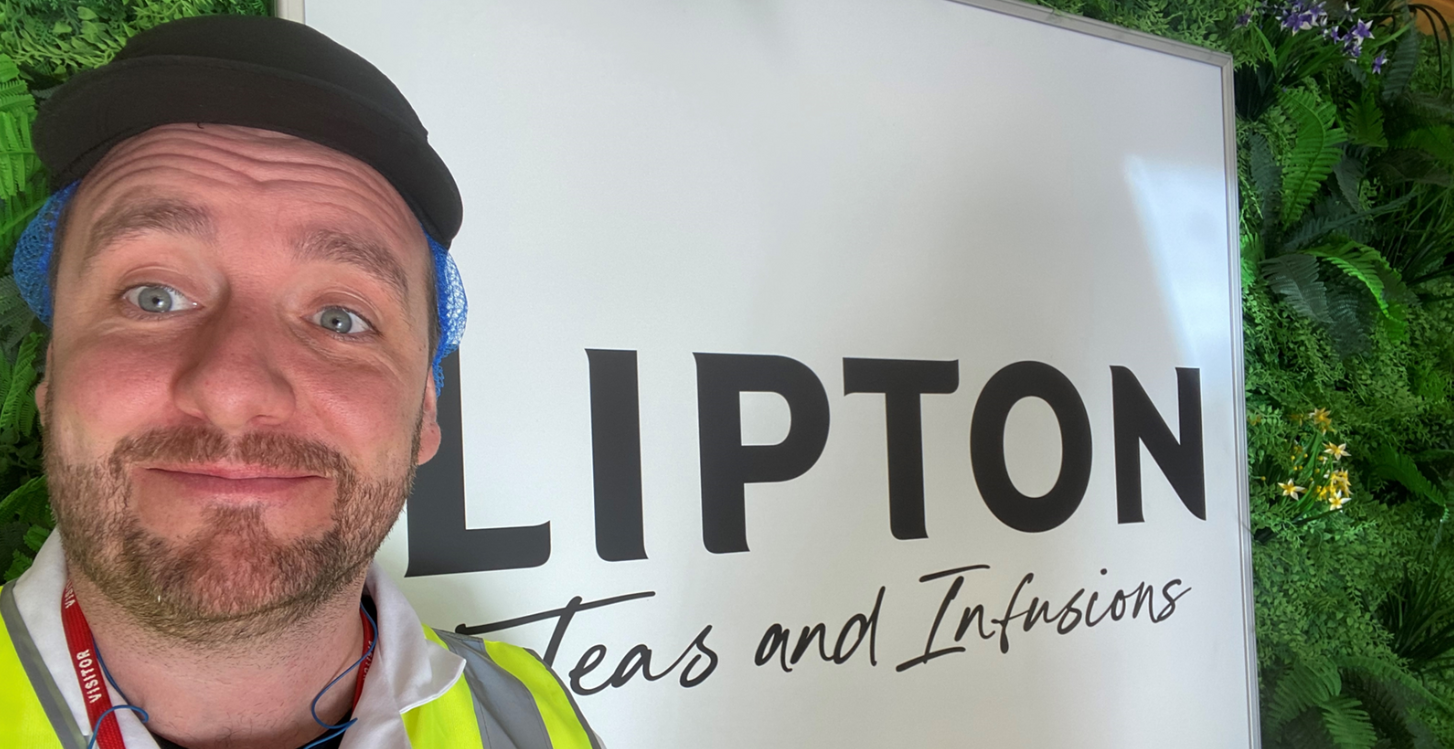
2023
From Coffee Snob to Tea Convert: My Gemba Walk at Lipton Teas & Infusions
Accompanied by Jill Sheron, Account Manager from Morgan Ryder Recruitment, I had the pleasure of a behind-the-scenes look at how the world's largest tea company keeps millions of global customers satisfied every single day.
For me, this was more than just a site tour—it was a true Gemba Walk into the heart of a global operation steeped in tradition, innovation, and sustainability. And while I walked in as a staunch coffee snob, I walked out with a newfound respect for the craft of tea-making... and a regular mug of Pukka Tea on my desk.
What I discovered at Lipton Teas & Infusions in Trafford Park, Manchester surprised and impressed me, and not just because of the scale, precision, and passion on display. It’s a story of legacy, local pride, and global reach. Here's what I learned.
The Legacy: From Unilever to Lipton Teas & Infusions
Once part of Unilever’s global tea division, the Trafford Park factory, home of Brooke Bond’s PG Tips brand, now sits under Lipton Teas and Infusions, the independent company spun off in 2021 (then called Ekaterra) and acquired by CVC Capital Partners in 2022 for €4.5 billion. Today, Lipton Teas & Infusions is the world’s largest tea company, with about €1.9 billion in revenue, 17,000 employees, and serving 400 million consumers daily across more than 100 countries.
Natalie Roos - CEO of Lipton Teas and Infusions.
The Global Tea Landscape: Market Share & Value
Lipton Teas & Infusions holds a commanding position with 36 brands, including Lipton, PG Tips, Pukka, Tazo, T2 and more. Lipton is the global flagship, #1 brand by value, especially strong in black tea, which represents about 70% of total sales. The global tea market is worth roughly USD 76 billion in 2023, expected to grow to $118 billion by 2030 at a CAGR of 6–7%.
Regionally, the Middle East & Africa and Western Europe are Lipton’s largest revenue contributors, growth is being driven in markets like Turkey and Pakistan, where per‑capita consumption is especially high.
Lipton Teas & Infusions purchases about 4% of the world's black tea leaf supply. Originally Unilever's tea division bought closer to 10%, but the carve‑out now sources from hundreds of suppliers across India, Sri Lanka, Kenya, Rwanda, and Bangladesh.
Touring the Trafford Park Site
Located in Trafford Park, the world’s first planned industrial estate (just under 4 mi²), the factory sits in a historic zone of 1,400 companies employing some 40,000 people. The PG Tips/Brooke Bond works has stood there since the 1920s and serves as Lipton’s UK flagship production site.
On the day of my tour, the site felt modern and dynamic, thanks in part to a recent £40 million investment by Lipton Teas and Infusions to upgrade machinery and staff training, part of a broader £50 million redevelopment of PG Tips at Trafford Park in 2023–24. They’ve rolled out a new square tea bag design and blend, optimised for faster infusion and richer flavour using high‑altitude Kenyan and Rwandan teas.
Staff numbers are substantial, while the global company employs 17,000, the Trafford Park facility is a major UK hub, including tea‑blenders, technicians, quality‑control tasters, sustainability and logistics teams. The investment included extensive training for machine operators and tea‑blend experts to support the new formats and blends.
Products & Process: From Leaf to Cup
Lipton Teas & Infusions produces across dozens of categories, Lipton Yellow Label, PG Tips (UK), Pukka herbal infusions, TAZO and T2 premium blends among others. Their infusions range from conventional black and green tea to herbal teas and wellness blends, Pukka and T2 even hold B Corp certification.
During the tour, I observed the process:
-
Sourcing: Leaves arrive from estates in Kenya, India, Sri Lanka, and Rwanda (although Lipton sold off tea estates in East Africa in May 2024 to Browns Investments, the sourcing continues under contract production aligned with ESG standards).
-
Withering & sorting: Leaves are withered, graded, and sorted to ensure consistent quality.
-
Blending: Master blenders follow tightly controlled recipes, PG Tips now uses shoot‑tip leaf particles with optimized size to infuse rapidly in square tea bags.
-
Bagging & packaging: The new square bag machine operates with biodegradable, plastic‑free packaging. Boxes are now more compact, 33% smaller, with fully recyclable board.
-
Quality tasting: A team tastes over 10,000 cups per week at global HQ, applying sensory protocols to ensure flavour consistency.
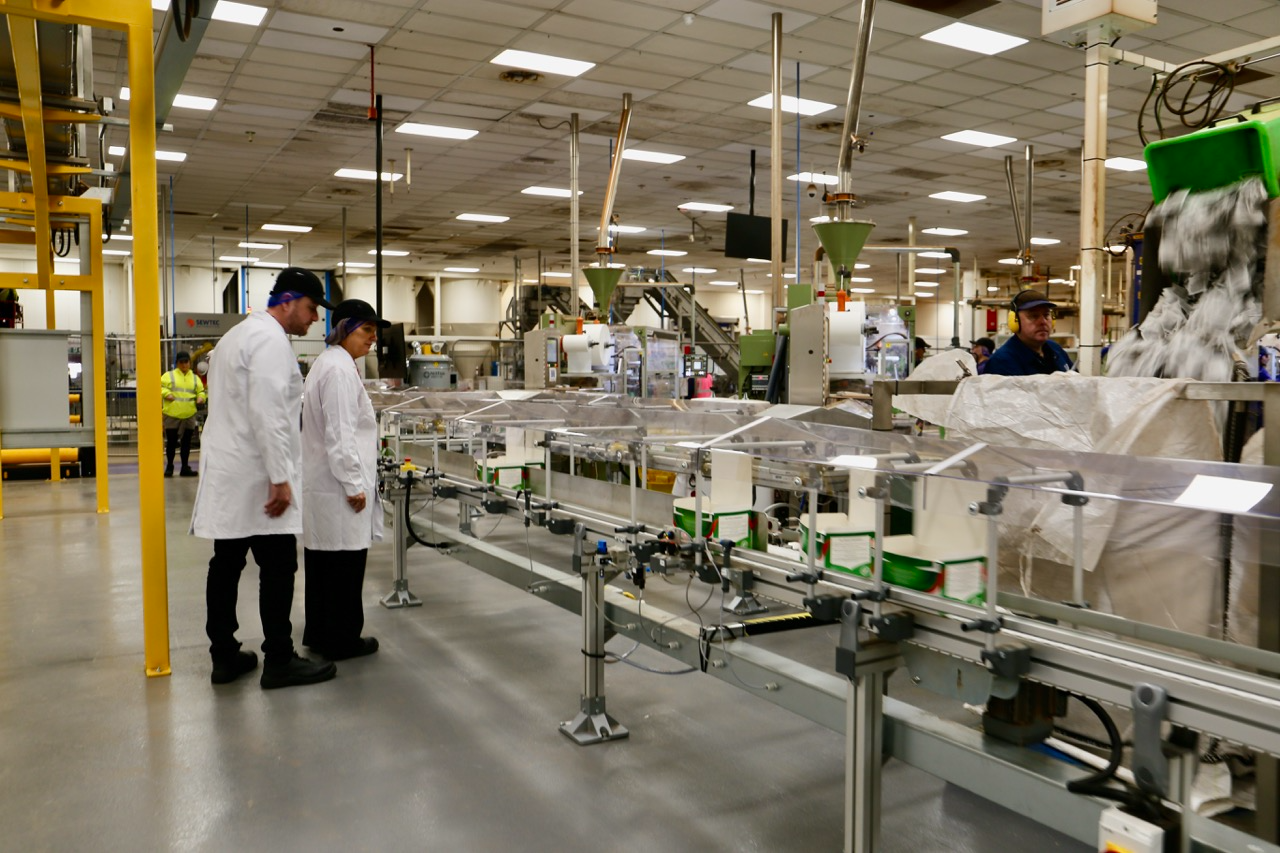 |
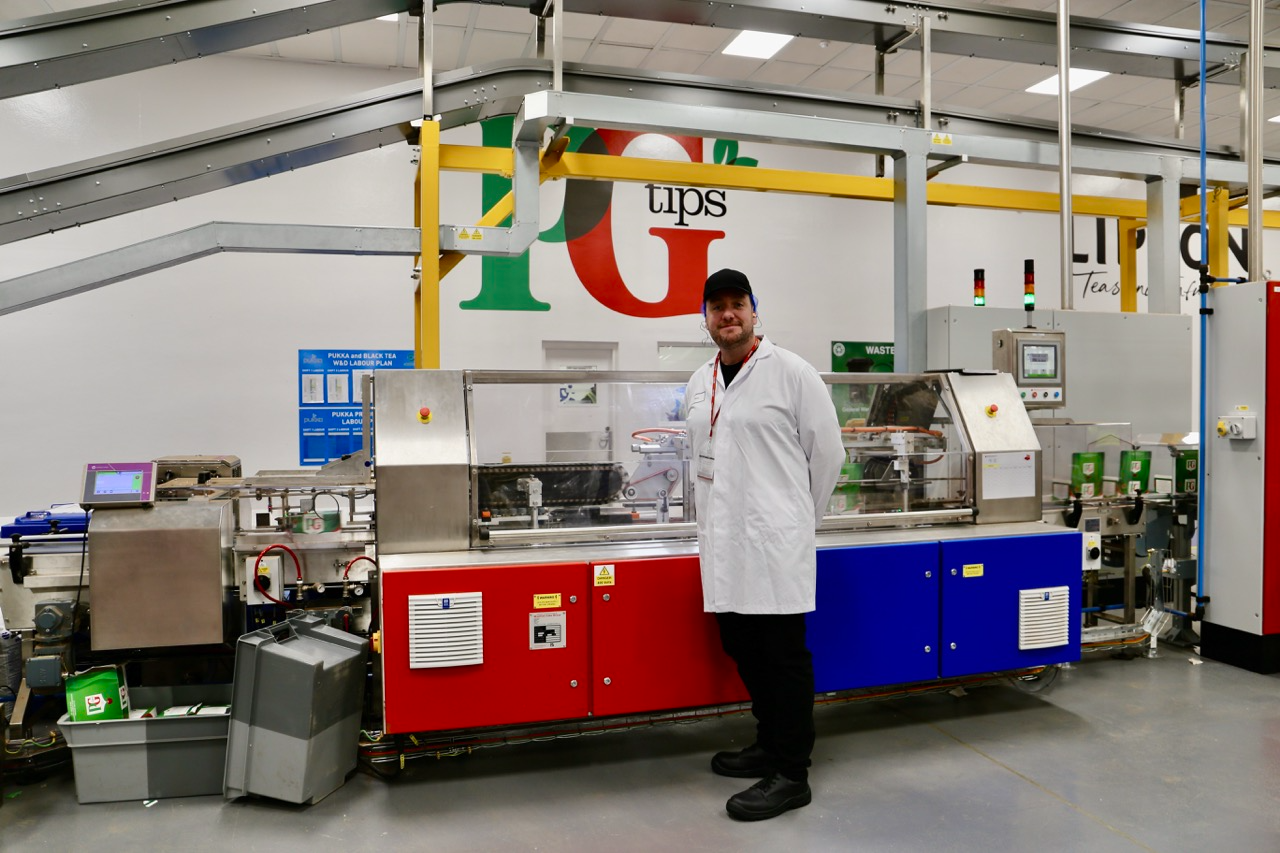 |
Sustainability & Innovation
Lipton Teas & Infusions leads with sustainability, 98% of its tea Rainforest Alliance certified, and Pukka herbals fully organic certified. Five of their eight factories are carbon‑neutral, and their Kenyan operations run mostly on renewable energy. The company also launched the Lipton Tea Innovation & Technology Academy in Kenya in early 2024, offering vocational to degree‑level training in sustainable tea growing practices.
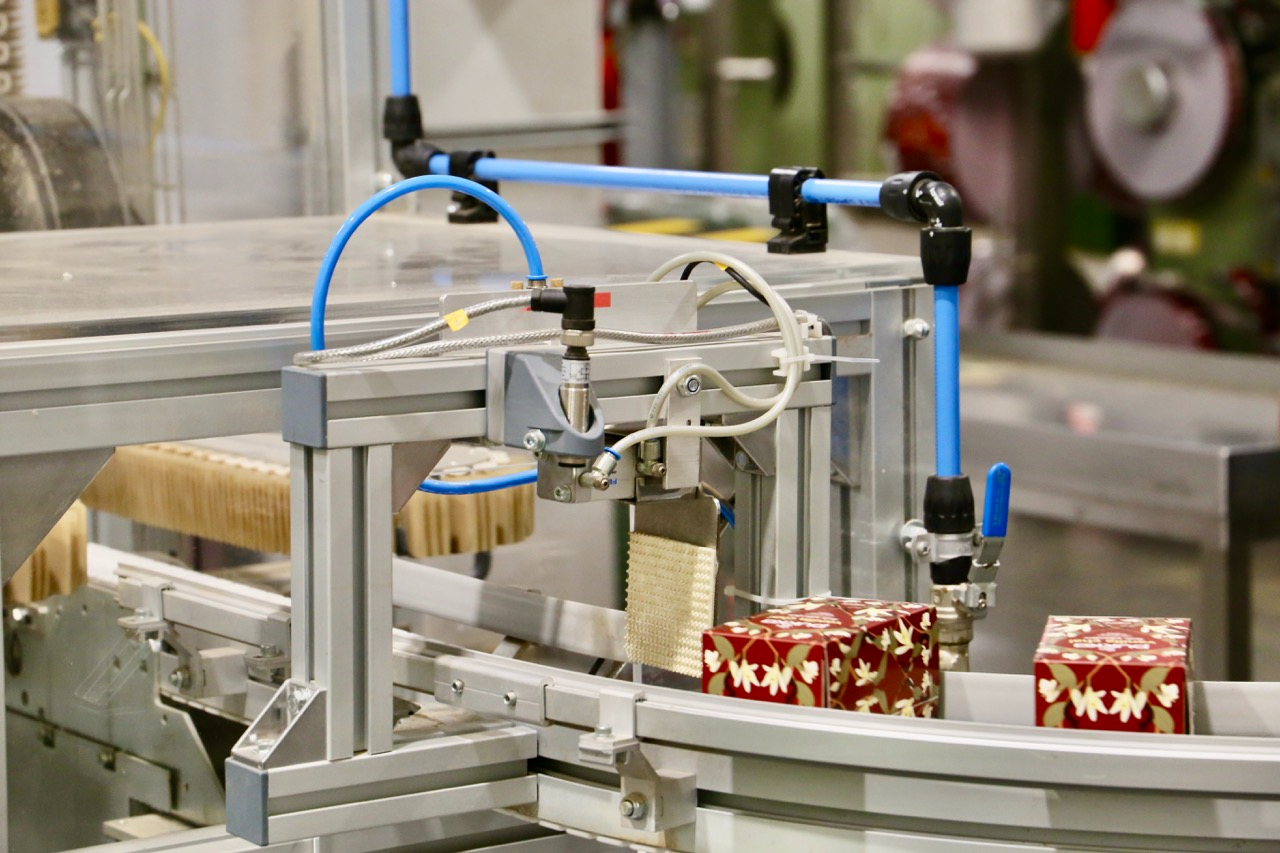 |
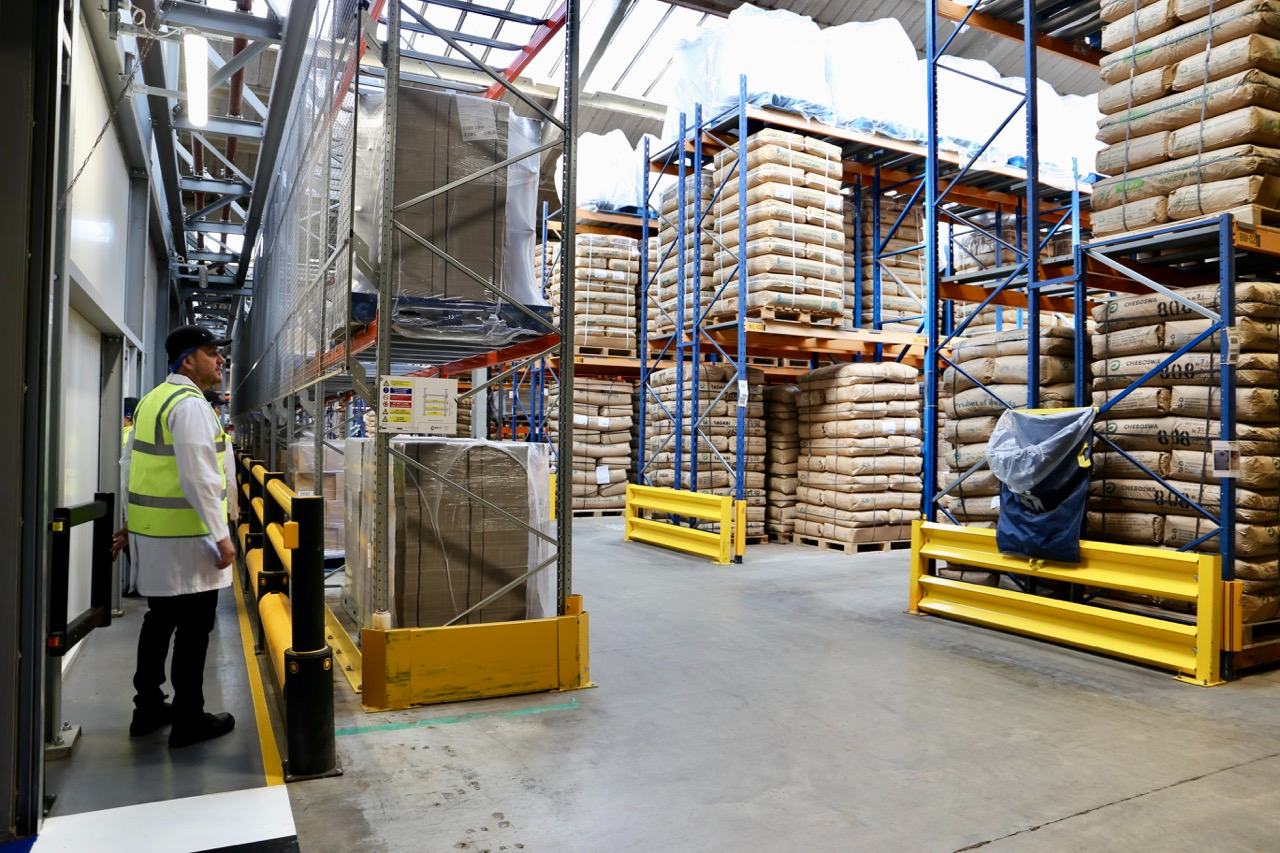 |
Final Thoughts: A Local Gem in a Global Leader
What struck me most on the tour was how this historic Manchester factory has transformed into a cutting‑edge centre, bridging 100+ years of tea‑making tradition with sustainability, technology, and global scale. The Trafford Park site continues its legacy under Lipton Teas & Infusions, blending British history with global innovation.
From the bustling floor where square tea bags flood off the new machines, to the tasting stations and sustainability labs, every step reflects a vision, to deliver millions of cups worldwide that balance flavour, speed, and environmental responsibility, while rooted in Manchester’s industrial heritage.
How can we help?
If you’d like to learn more about our divisions, don’t hesitate to ask…
